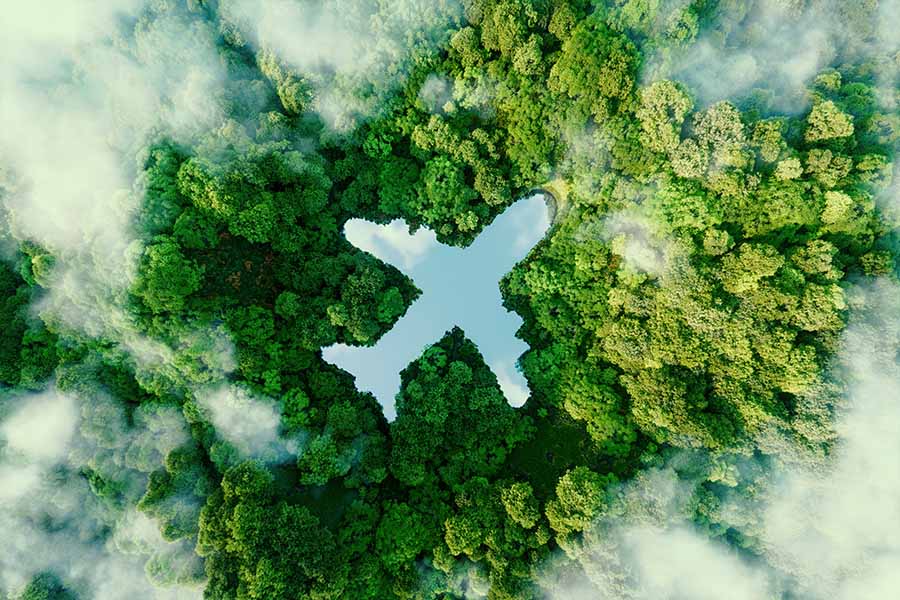These tools are being used to foster transparency, authenticity, and innovation within the sector, giving travelers an effective way of giving back to local communities while incentivizing responsible behavior abroad.

NFTs and Blockchain Refresher
NFTs are digital assets that can represent ownership of real or virtual items like artwork and collectibles. NFTs can also be used as tickets or tokens for members-only access, rewards, and other benefits. Unlike traditional currencies, which have a fixed value, NFTs are unique pieces with different values determined by their rarity, the artist’s reputation, or by the benefits they confer.
Blockchain technology is a decentralized ledger system that records digital transactions, allowing users to track and verify data without relying on middlemen. It is secure and immutable, which means that transactions once recorded cannot be tampered with or changed.
How Do NFTs and Blockchain Support Eco-Friendly Tourism Practices?
NFTs and blockchain technology can support eco-friendly tourism practices in several ways:
Transparency and traceability: Blockchain technology allows for transparent and traceable tracking of transactions, making it possible to verify the authenticity and ownership of NFTs. Not only can this help prevent fraud, it can also ensure that NFTs are being used for their intended purpose, such as funding conservation efforts or offsetting carbon emissions.
Carbon offsetting: NFTs can be used to represent carbon credits, which can be purchased by travelers to offset the carbon emissions associated with their travel. As mentioned, the use of blockchain technology ensures that these transactions are transparent and traceable, allowing for greater accountability and verification.
Conservation funding: NFTs can be used to raise funds for conservation efforts in areas where tourism is prevalent. For example, NFTs could be created to represent endangered species or protected areas, with proceeds from their sale going towards conservation efforts.
Sustainable transportation: NFTs can be used to incentivize sustainable transportation options for tourists, such as electric vehicles, public transportation, or bike-sharing programs. Travelers who choose these options can be rewarded with NFTs that represent their commitment to sustainable travel.
Digital souvenirs: NFTs can be used to create digital souvenirs that represent a unique experience or memory of a traveler's trip, without contributing to physical waste or environmental harm.
Eco-friendly Activities: A travel company could create an NFT that represents a particular eco-friendly activity, such as a guided hike or a community-based homestay. The NFT can serve as the token to grant access to the event, activity, or homestay. Additionally, the proceeds could be used to support the local community and help promote sustainable tourism practices.

Using NFTs for Sustainable Tourism: A Couple Examples
One company using NFTs for carbon offsetting in sustainable tourism is called Terra Virtua. They have partnered with CarbonClick, a New Zealand-based company that allows individuals and businesses to purchase carbon offsets. Together, they have created NFTs that represent carbon credits, which travelers can purchase to offset the carbon emissions associated with their travel.
Terra Virtua's platform allows users to purchase these NFTs and track their carbon offsets in real-time. The company aims to make sustainable travel more accessible and appealing by incentivizing travelers to offset their carbon emissions and contribute to sustainable tourism efforts.
Through this partnership, Terra Virtua is using blockchain technology to create a transparent and accountable system for carbon offsetting in tourism. By offering travelers a tangible way to offset their carbon footprint, they hope to encourage more people to adopt sustainable travel practices and contribute to a more sustainable future for tourism.
Lime, a shared electric scooter and bike rental company that operates in various cities around the world, is using NFTs to incentivize sustainable transportation options for tourists. They have recently introduced a new program called Lime Rewards, which allows users to earn NFTs for choosing sustainable transport options such as electric scooters, bikes, or public transportation.
When a user chooses a sustainable transport option through Lime Rewards, they earn an NFT that represents their commitment to sustainable travel. These NFTs can be traded, collected, or redeemed for rewards such as free rides or discounts on future Lime rentals.
Lime's use of NFTs incentivizes sustainable travel by rewarding users for making environmentally-friendly choices. By providing a tangible reward in the form of an NFT, Lime is encouraging more people to choose sustainable transport options and contribute to a more sustainable future for tourism.

Conclusion
As the world becomes increasingly aware of the need for sustainable practices in all areas of life, the travel industry is no exception. NFTs and blockchain technology have the potential to support sustainable tourism practices by promoting transparency, accountability, and innovation.
NFTs can enable travelers to directly support local communities and sustainable tourism initiatives, while also incentivizing sustainable travel behaviors. Meanwhile, blockchain can provide a way to track the sustainability of travel products and services, create decentralized marketplaces for sustainable tourism, and facilitate collaboration and innovation in the industry.
By using these technologies, travel companies can encourage responsible behavior among tourists and travelers while simultaneously promoting sustainable practices within their operations—benefiting themselves, customers, local communities and the planet!
Did you know you can grab a FREE HelloVacay Pilot Passport (digital collectible NFT) and get access to verifiable private travel rates? Learn more >

